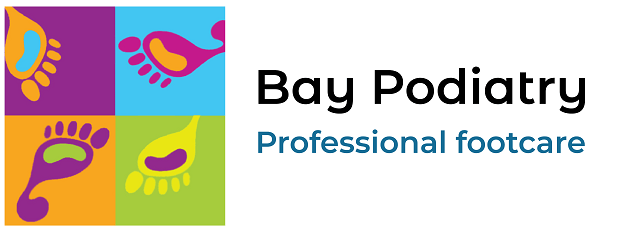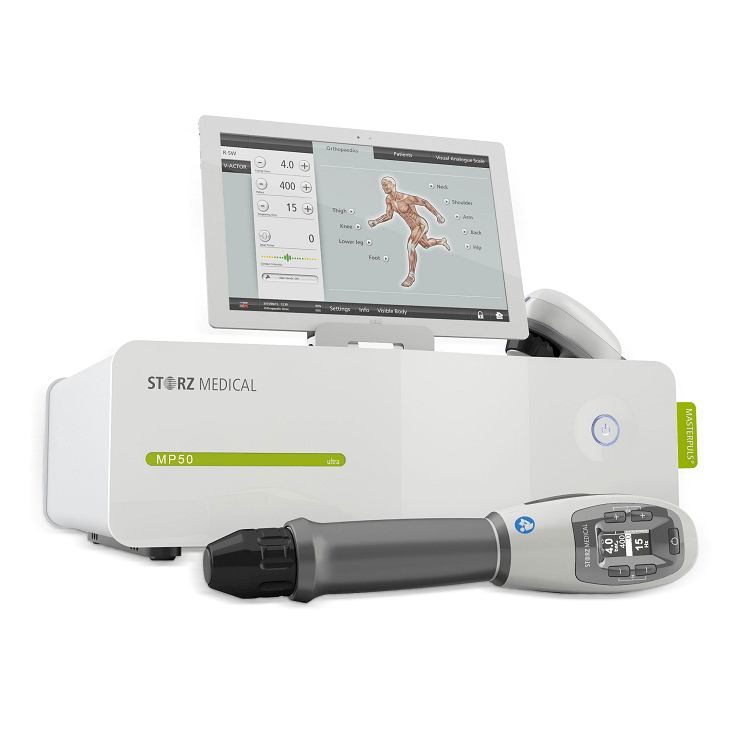What is Extracorporeal Shockwave Therapy?
Extracorporeal Shock Wave Therapy (ESWT) is a non-invasive treatment where a hand-held device introduces energy to painful areas, promoting a healing response.
Regardless of the cause, injuries can be debilitating and, if left untreated, may affect your daily life. ESWT is a non-surgical, non-invasive treatment option for a wide variety of conditions.
What are Shockwaves?
Shockwaves are high-energy, non-audible, sound waves which are transmitted to the affected area to accelerate healing. The treatment increases blood flow, decreases localised pain and stimulates cell regeneration - this encourages the body to repair itself. Shockwaves also break down injured tissue and calcifications.
Which conditions can be helped with ESWT?
ESWT can help a number of different musculoskeletal conditions. As a podiatry practice we are focused on managing the following conditions:
- Achilles Tendonitis
- Plantar Fasciitis (Heel Pain)
- Patellar Tendonitis (Jumper’s Knee)
- Medial Tibial Stress Syndrome (Shin Splints)
Who can’t have ESWT?
There are very few reasons why you can’t have ESWT. These include:
- Pregnancy
- If you are under the age of 18
- If you have a pacemaker
- If you have a blood clotting disorder or you are taking any medication to thin your blood (excluding Aspirin)
- Internal metal work or prosthetic joint near the treatment site
- Inflammation, open wound or suspected infection at the treatment site
- If you have had a steroid injection in the last 12 weeks
- If you have been diagnosed with epilepsy
There are also a number of different medications that reduce inflammation and/or suppress the immune system. This medication wouldn’t stop you having the treatment but may make it less effective. Your podiatrist will discuss this with you before commencing any treatment.
You should avoid taking any anti-inflammatory medication, such as Ibuprofen, Naproxen, or Diclofenac, for 2-weeks prior to your appointment and during the course of your treatment.
Is ESWT safe?
As long as you don’t fall into one of the categories above, then yes, ESWT is safe and has been deemed so by the National Institute of Clinical Excellence (NICE). There is a small risk of tendon or ligament rupture and damage to the soft tissue, but this will be monitored before and after each treatment session.
How much does ESWT cost?
Each ESWT session costs £55. The research suggests that you will need, on average, between 3 and 6 sessions depending on how long you have had the problem for. These sessions will normally be spaced 3 to 7 days apart.
Does ESWT work?
ESWT is a clinically proven treatment with studies showing it to be effective in up to 70% of cases of chronic conditions, such as plantar fasciitis (sometimes referred to as plantar fasciopathy or plantar fasciosis). Unfortunately, like any treatment, there is no guarantee that it will benefit everyone and it is also important to note that ESWT only forms part of your individual treatment plan. ESWT will need to be combined with other appropriate treatments, such as: high intensity loading, stretching exercises, foot orthoses and/or night splints.
Is ESWT painful?
Pain levels will vary from person to person but any discomfort during treatment should be tolerable. Due to the analgesic effect of ESWT many patients report immediate pain relief following treatment. If you experience pain after treatment you may use ordinary non-prescription painkillers such as paracetamol. As previously mentioned, do not take any anti-inflammatory medication as this may interfere with the body’s self-healing process.
How long does each treatment take?
You will be given a 15-minute appointment and the actual treatment time of ESWT is approximately 5-minutes.
How do I make an appointment?
You can book an appointment for ESWT here>>
If you have any further questions, then please do not hesitate to contact us at the clinic on 0191 2524441.

